Mental health crisis as kids fear climate change will lead to end of the world
Climate change fearmongering is inciting anxiety in children as young as 10 who fear the end of the world is near. The problem is so widespread the American Psychological Association has coined a term for it: eco anxiety.
NSW
Don't miss out on the headlines from NSW. Followed categories will be added to My News.
- Wodak: Climate change fuelling drug addiction
- What you get with your subscription
- ‘Striking for climate change doesn’t make you smart’
Psychologists are treating a wave of children as young as 10 who are paralysed by climate change fearmongering.
Experts have warned “catastrophising” about global warming and species extinction is having a serious impact on the mental health of many young people.
With a global school student-led climate march organised in Sydney today, The Daily Telegraph can reveal even preschool children are being taught about dire climate change outcomes.
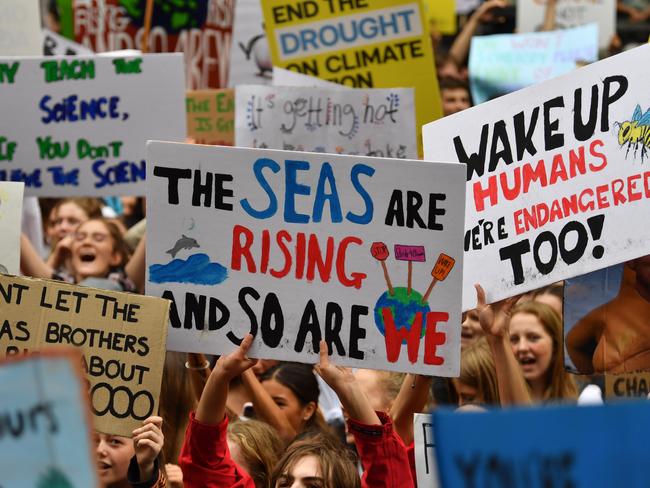
Leading Australian adolescent psychologist Dr Michael Carr-Gregg said he saw children every week who were afraid about the end of the world.
“When your brain is not fully developed there is a tendency to catastrophise,” he said.
“We call it emotional reasoning, where they will confuse feelings with fact. They are led to believe the world is coming to an end and they see that as fact.
“Every time I talk to a kid with anxiety disorder, they tell me about climate change.”
MORE NEWS
Rise of ‘zombie’ pedestrians put lives at risk
Survivor star raises $550k on GoFundMe page
Cops focus on chicken factory after Easey murder arrests
Swedish teenager Greta Thunberg has become the poster child for environmental catastrophism.
A 2018 report by youth environment and sustainability group Millennium Kids found a link between young people and feelings of anxiety, depression and disempowerment.
They found 96 per cent of seven-to-25-year-olds consider climate change to be a serious issue, with 89 per cent worried about the effects of climate change.
So widespread is this new mental health challenge, the American Psychological Association coined a new term in 2017 to describe a chronic fear of environmental doom: eco anxiety.
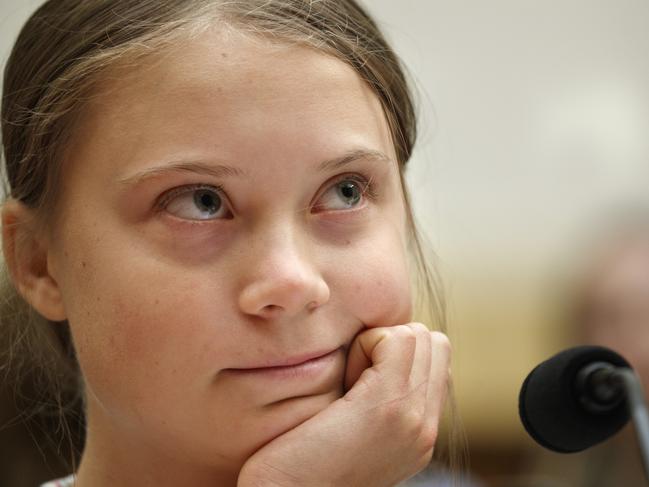
Despite this, children as young as three are being taught about climate change in preschools.
Information obtained by The Telegraph shows toddlers are being taught about melting polar icecaps and the threat to animals in these regions.
There are no rules or directives controlling whether childcare centres in NSW teach their young students about climate change and the plight of the planet, said Australian Childcare Alliance CEO Chiang Lim.
“I would think climate change is one of those things that is a topic more suited to adults,” Lim said. “I would be surprised if climate change is being taught by childcare services. If what they are teaching is causing distress, it goes against one of the three fundamental tenants of educational care we follow.”
Parenting expert Dr Justin Coulson said some children may be vulnerable to negative predictions about the future.
“As adults, we have a responsibility to be hope-givers. This means setting a clear vision for a positive future (regardless of politics), developing pathways to achieve that future, and believing in our society’s capacity to solve the problems we face,” he said.
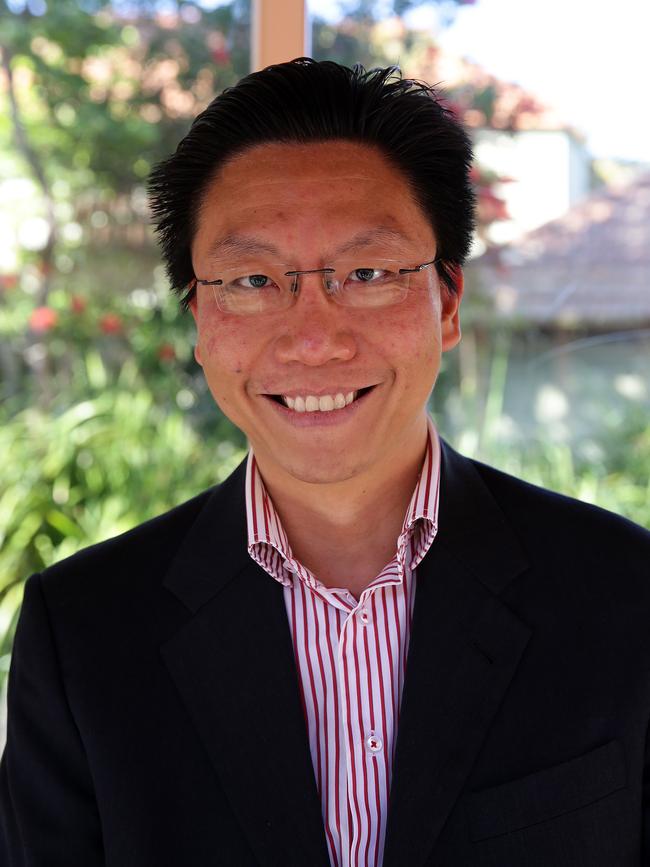
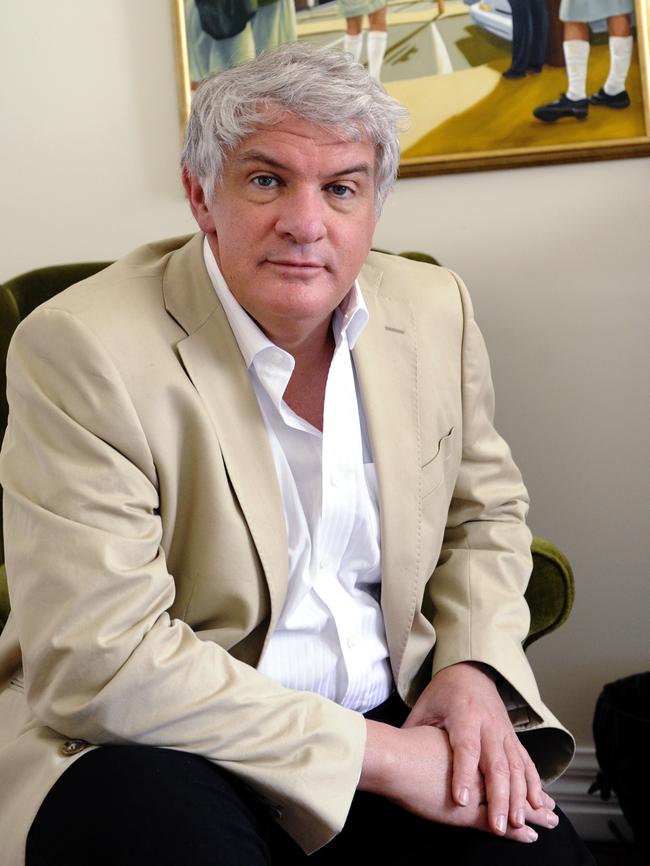
Children in rural areas are dealing with an environmental challenge a lot closer to home, said Georgina Manning who trains teachers to deal with anxiety in children through Wellbeing For Kids.
“The feedback I get is that there are whole schools of traumatised kids in rural areas so affected by what’s happening in their environment,” she said.
“Teachers are pulling their hair out not knowing how to help these kids in drought-affected areas.”
Dr Reema Ramadan, senior clinical psychologist for youth mental health service Orygen, said concern over climate change in adolescents and children was growing.
“When we do research assessments we ask young people what worries them and it used to be relationships with their friends and the way they look, but over the last few years it’s increasingly about what the future will look like,” she said.
“The effects of extreme weather increases the rates of mental health issues and it can do this for years to come. Following the 2009 Melbourne bushfires, there was a study conducted on the mental health effects in people and it was followed up five years later. They saw elevated rates of mental illness even years later.
She added it was important young people took part in today’s march because it made them feel they were doing something positive to bring about change and would give them hope for the future.
Clinical psychologist Dr Judith Locke warned parents not to confuse fear their children may have about climate change with anxiety.
“Fear over climate change is a normal response, but if that fear then leads to an inability to sleep, then it can be anxiety,” she said.
PREMIER URGES KIDS NOT TO SKIP SCHOOL
Premier Gladys Berejiklian has urged schoolchildren not to wag class today to protest climate change, while Catholic schools have told students that doing so isn’t going to “change the world”.
It comes after the heads of prestigious schools Newington College and Sydney Church of England Grammar School gave their students the green light to attend the rally scheduled for noon at The Domain.
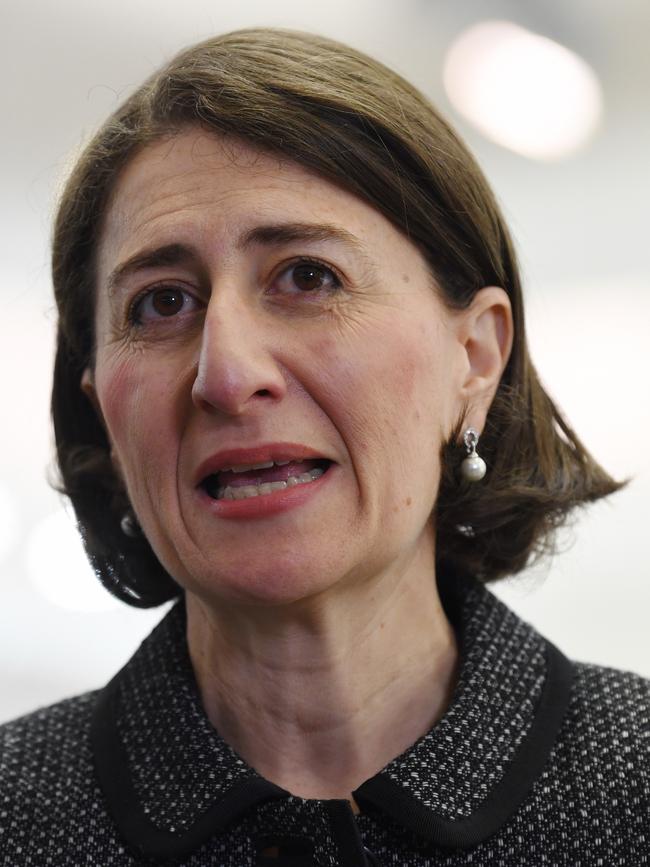
Ms Berejiklian suggested students should discuss how they can express their views with their teachers, rather than miss out on learning time.
“Of course, we encourage students to be passionate about issues of importance to them, and this can be done at school,” she said.
“There are plenty of ways for students to express their views and still attend school.”
“Skipping school to attend a protest is not acceptable.”
Catholic Education NSW chief executive Dallas McInerney told students on Thursday afternoon skipping class would not change the world.
“We believe students should learn about and discuss these issues in class where there is a responsibility on teachers to present information on important, contentious issues in a balanced and factual way,” he said.
“Skipping school doesn’t change the world, and we don’t accept there needs to be a clash between attending class and caring about global issues.”

